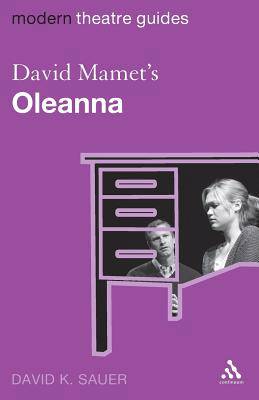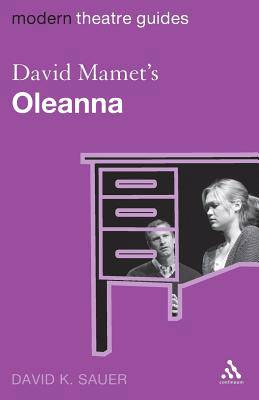
Door een staking bij bpost kan je online bestelling op dit moment iets langer onderweg zijn dan voorzien. Dringend iets nodig? Onze winkels ontvangen jou met open armen!
- Afhalen na 1 uur in een winkel met voorraad
- Gratis thuislevering in België vanaf € 30
- Ruim aanbod met 7 miljoen producten
Door een staking bij bpost kan je online bestelling op dit moment iets langer onderweg zijn dan voorzien. Dringend iets nodig? Onze winkels ontvangen jou met open armen!
- Afhalen na 1 uur in een winkel met voorraad
- Gratis thuislevering in België vanaf € 30
- Ruim aanbod met 7 miljoen producten
Zoeken
€ 25,95
+ 51 punten
Uitvoering
Omschrijving
David Mamet is widely considered to be the voice of contemporary American Theatre. His use of what is taken to be realistic language together with minimalist staging creates a postmodern combination that pushes an audience in conflicting directions. The result is that initial audiences for Oleanna were aroused to applaud and loudly react to the ending of the play when a male teacher beats a female student. The issues the play raises about political correctness are turned on their head. Oleanna is a particularly complex play in terms of both form and content and this guide offers a theoretically informed introductory analysis. It provides students with a comprehensive critical introduction to the play and includes new interpretations of the text in light of recent developments in Mamet's playwriting and the intervening shifts in the political landscape.
Specificaties
Betrokkenen
- Auteur(s):
- Uitgeverij:
Inhoud
- Aantal bladzijden:
- 128
- Taal:
- Engels
- Reeks:
Eigenschappen
- Productcode (EAN):
- 9780826496461
- Verschijningsdatum:
- 1/01/2009
- Uitvoering:
- Paperback
- Formaat:
- Trade paperback (VS)
- Afmetingen:
- 127 mm x 193 mm
- Gewicht:
- 136 g

Alleen bij Standaard Boekhandel
+ 51 punten op je klantenkaart van Standaard Boekhandel
Beoordelingen
We publiceren alleen reviews die voldoen aan de voorwaarden voor reviews. Bekijk onze voorwaarden voor reviews.











